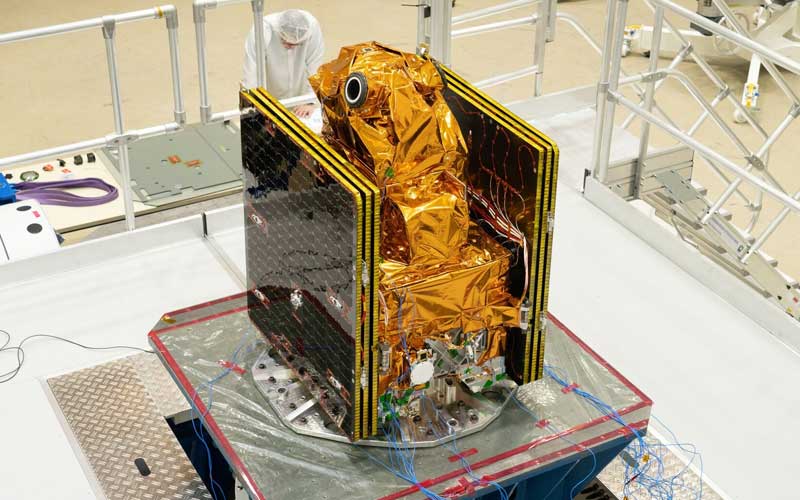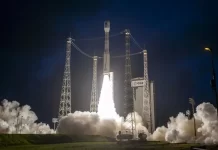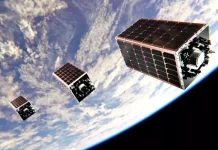
The European Space Agency’s AWS mission will be launched aboard a SpaceX Falcon 9 rocket later today on a mission to study Arctic weather.
The Arctic Weather Satellite (AWS) is intended to be a prototype of a proposed constellation of small satellites called EPS-Sterna. If the constellation is launched, it will enable short-term, precise Arctic weather forecasts, a capability that is not currently well established. The small satellite carries a 19-channel cross-track scanning microwave radiometer that is capable of providing high-resolution humidity and temperature data of the atmosphere in all weather conditions.
Work on the AWS began in early 2021, with an OHB Sweden-led consortium being awarded a €32.5 million contract to develop and build the 125-kilogram satellite. OHB Sweden delivered the AWS flight model for testing in late 2023, just 36 months after work on the satellite began.
On 31 January 2024, German in-space mobility service provider and launch aggregator Exolaunch was tapped by ESA to provide launch services for the AWS satellite. To date, Exolaunch has launched 29 missions aboard Ariane 6, Electron, Falcon 9, Falcon Heavy, and Soyuz rockets.
The 30th Exolaunch mission will be launched aboard the SpaceX Falcon 9 Transporter-11 flight. The flight will include 116 spacecraft, 42 of which will be Exolaunch customer payloads. Italian space mobility company D-Orbit will also be launching several customer payloads aboard the Transporter-11 flight utilizing the company’s ION space tug.
Once placed into orbit, the AWS satellite will be capable of operating without interruption for approximately five years.
If the AWS mission is successful, ESA will move ahead with building the constellation of 16 EPS-Sterna satellites for the European Organisation for the Exploitation of Meteorological Satellites (EUMETSAT), an intergovernmental organisation that includes participation from 30 European member states. EUMETSAT is the same organisation that caused an uproar in June when it selected to ditch Ariane 6 in favour of Falcon 9 to launch its Meteosat MTG-S1 satellite.




